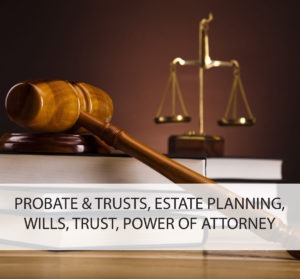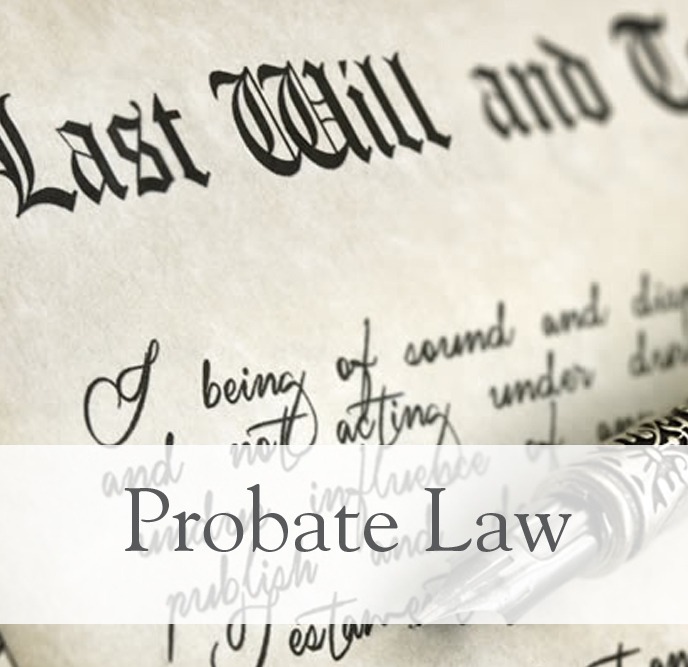Probate & Trusts, Estate Planning, Wills, Trust, Power of Attorney
 If we spare even a fraction of the time we spent on earning all that money and building those assets, we would be able to ensure that it stays in the right hands even when we are not around to look after them. The federal law provides multiple legal options for you to choose form in order to facilitate a judicious planning of your property and assets. We are here to help you understand the various legal rights of a valid US citizen in managing his property and estate while he/she is alive and also post his/her demise.
If we spare even a fraction of the time we spent on earning all that money and building those assets, we would be able to ensure that it stays in the right hands even when we are not around to look after them. The federal law provides multiple legal options for you to choose form in order to facilitate a judicious planning of your property and assets. We are here to help you understand the various legal rights of a valid US citizen in managing his property and estate while he/she is alive and also post his/her demise.
Will
A will is one the most commonly referenced legal document which allows an individual to manage the division and consecutive distribution of his or her property and estate post death. Creating a final testament or a will gives you the discretion of deciding as to how your hard-earned money and assets should be distributed among those chosen solely by you.
Probate
A probate is a legal proceeding that involves proving the validity of the will of a deceased, and then carrying out the process of appraisal and distribution of his assets as per the instructions stipulated within the will. A probate is of great significance in property distribution cases wherein the deceased failed to plan out a valid will while he/she was alive.
Trust
A trust can be cited as a written agreement between two or more parties wherein a trustee is attributed with a legal title to a property or an asset on the behalf of a trust beneficiary. The creator of the trust, called the settler provides the instruction for distribution of his assets among the beneficiaries to be carried out by the trustees. A trust can be especially useful in situations where a settler does not wish to provide outright control over his assets to the beneficiary, as the latter may not be mature enough or legally able to deal with them.
Power of attorney
A POA is a legal document which allows you to authorize an individual of significant trust to take control over your financial or healthcare responsibilities in your absence or inability to administer your property and assets.
Why should I hire an attorney?
Before coming to a final conclusion as to whether you should hire an attorney for your property distribution planning or not, you must understand the significance of the proper composition of a legal document. One single missing signature or a misplaced word might entirely alter the actual intent of your trust, will or POA. An attorney can help you in designing a legally correct document which reflects your intent in its entirety. In addition to this, the state laws for all estate planning related instruments vary from state to state. It is utmost essential to consult a professional attorney before creating a will or executing a trust, in order to stick to the laws of your specific state. Furthermore, hiring a lawyer also helps deal with any complex financial or family situations such as a second marriage, minor children, physically disabled family member or a recent divorce.
If you are looking for professional legal advice for creation of a will, trust, POA or estate planning and more in the Volusia County region, just visit https://simmslawfirm.com for assistance form some of the best legal minds in the country.
To contact Florida attorney Debra G. Simms, P.A. in Port Orange or New Smyrna Beach, FL please call 877.447.4667

 If you are residing in Volusia County or New Smyrna Beach or Port Orange or Daytona area or anywhere in the surrounding areas, chances are you are in need of a trust lawyer. There are a number of registered law firms in these areas. You will come across a law firm or an attorney who will be of help to you. Many people require trust lawyers while making an estate plan.
If you are residing in Volusia County or New Smyrna Beach or Port Orange or Daytona area or anywhere in the surrounding areas, chances are you are in need of a trust lawyer. There are a number of registered law firms in these areas. You will come across a law firm or an attorney who will be of help to you. Many people require trust lawyers while making an estate plan. You may be a resident of the Volusia County or of New Smyrna Beach or of Port Orange or of Daytona area or anywhere in the surrounding areas, and are in need of a
You may be a resident of the Volusia County or of New Smyrna Beach or of Port Orange or of Daytona area or anywhere in the surrounding areas, and are in need of a 
